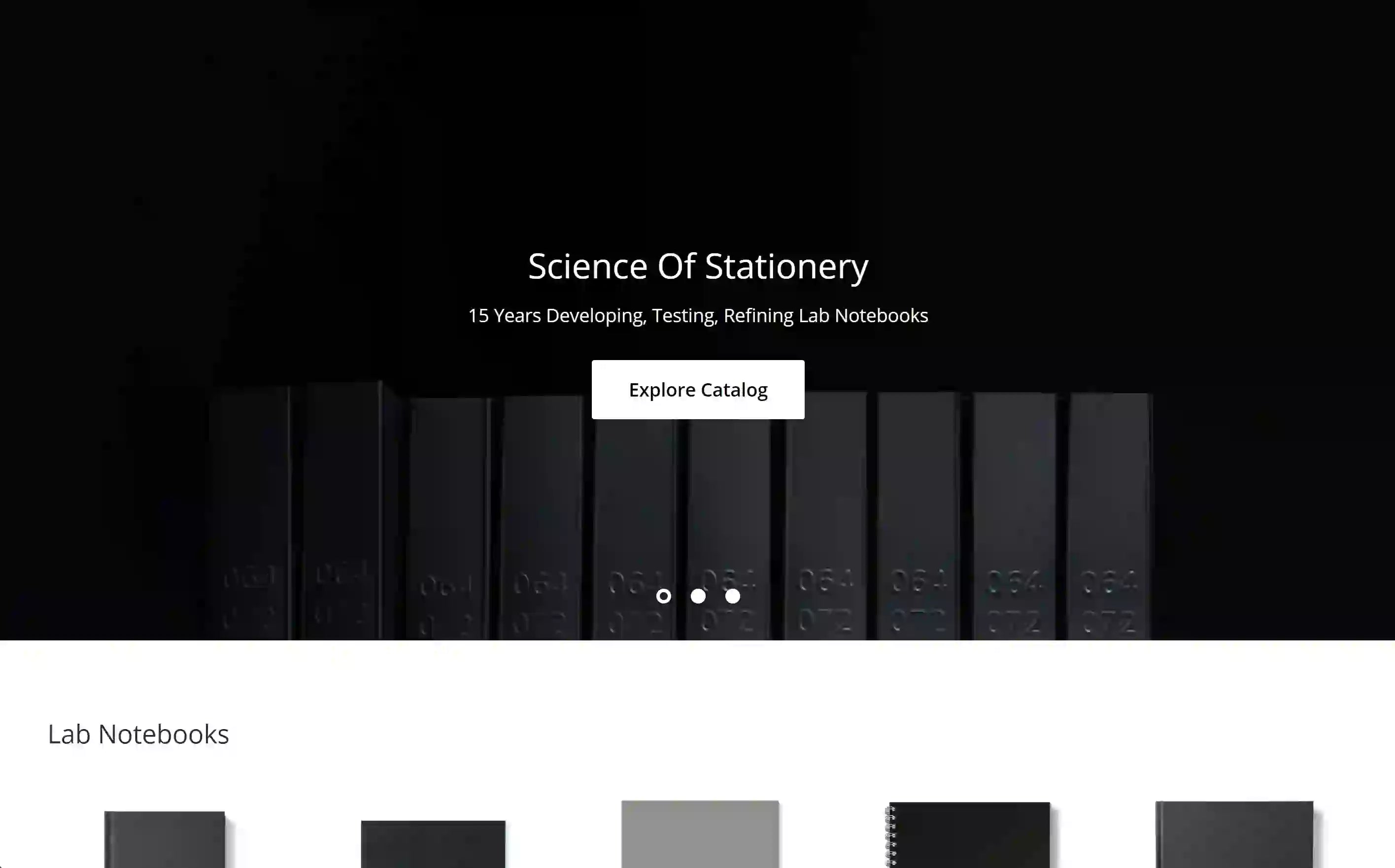In the modern research world, scientists are mixing, matching, and merging disciplines like never before. From biochemistry to material science, ecology, and physics, the boundaries are shifting fast. As the research world becomes more collaborative and cross-disciplinary, one often overlooked tools that proves essential is lab stationery.
Lab notebooks, data sheets, labels, and forms are quietly playing a huge role in keeping research organized, efficient, and accurate across various fields. But here's the catch: not all lab stationery is built the same. Different disciplines require different features, and that’s where the fun begins.
In this blog, we’re explore how lab stationery can be customized to serve the diverse needs of cross-disciplinary research.
1. What Every Lab Needs
No matter your discipline, certain features are essential for keeping things on track. Here’s what all cross-disciplinary researchers can agree on:
-
Clarity is everything: You need to read your own handwriting when the results are in. Your lab notebook should give you enough space to capture all the details. Legibility is key, no matter what field you’re in.
-
Durability: Life in the lab is tough. Whether it’s spilled chemicals, coffee-fueled late-night sessions, or a stray drop of liquid nitrogen, your stationery needs to stand the test of time. Waterproof, tear-resistant paper, sturdy bindings, and ink that doesn’t smudge will save your data when things get wild.
-
Security: Your data needs protection. Tamper-evident notebooks and secure labeling systems are a must for preserving your intellectual property and ensuring the integrity of your research.
-
Regulation-Ready: Whether you’re working with the FDA, ISO, or GLP standards, your lab stationery has to play by the rules. That means built-in features to help you stay compliant—like timestamped pages or standardized data fields.
2. Discipline-Specific Stationery
While there are universal needs, every field has its quirks. Here's how lab stationery evolves for different disciplines.
Biotech & Life Sciences
If you’re working in biotech or life sciences, your data might be as complex as the double helix you’re studying. Lab notebooks handle intricate details like gene sequences, experimental setups, and reagent lists. You want:
-
Smart Templates: Pre-designed pages for things like DNA sequencing, PCR protocols, or ELISA assays. This makes your life easier, especially when you’re dealing with long, repetitive processes.
-
Cross-Field Compatibility: A biotech researcher might find themselves collaborating with chemists or even environmental scientists. Customizable, hybrid forms that combine data logging with chemical measurements or field notes can bridge the gaps and make teamwork seamless.
Chemistry & Materials Science
In chemistry, materials science, or engineering labs, precision is crucial. The right lab stationery here needs to be as exact as your chemical measurements. Think:
-
Detailed Reaction Logs: Every chemical interaction needs to be recorded. The last thing you want is to misplace critical data because your lab notebook is a mess.
-
Chemical-Resistant Materials: Chemistry isn’t always a clean business. So, your stationery needs to hold up to spilled acids, solvents, and the occasional flame. Water-resistant paper, acid-proof inks, and sturdy covers are a must-have.
-
Batch Numbering Systems: An efficient sample numbering and tracking system helps prevent headaches down the road.
Environmental Science & Ecology
In environmental science, fieldwork is just as important as lab experiments. Whether you’re in the forest, at a wetland, or out in the desert, you need stationery that can handle the outdoors. Think rugged, weatherproof, and eco-conscious. You’ll want:
-
Weatherproof Notebooks: Field data should withstand rainstorms, mud, or even a sweaty palm. Waterproof, tear-resistant notebooks that can endure a fieldwork adventure are essential.
-
Portable Systems: You don’t want to be lugging around a heavy binder full of paperwork when you’re out on a hike. Compact, lightweight forms or even digital apps designed for mobile use help researchers document data on-the-go.
-
Sustainability: You’re working to save the planet, so your stationery should reflect that. Eco-friendly materials, from recycled paper to biodegradable pens, align with the values of environmental scientists.
3. Making Collaboration Easy
The beauty of cross-disciplinary research is that it brings together expertise from multiple fields. The challenge lies in ensuring that everyone can communicate effectively. A researcher in one field may speak a completely different "language" from one in another—especially when it comes to data entry and documentation.
Here’s how your lab stationery can make collaboration easy:
-
Customizable Forms: A one-size-fits-all approach doesn’t always work in cross-disciplinary teams. Custom forms that can adapt to different data collection needs ensure that everyone’s on the same page.
Shop VELA Sciences for Stationery You Can Rely On
Lab stationery isn’t just paper and ink—it’s the backbone of solid scientific research. From keeping your data safe to supporting the collaboration between diverse research fields, the right tools can make all the difference. At VELA Sciences, we’re all about crafting smart, durable, and adaptable lab stationery that makes the science you do just a little bit easier. Because, when your tools are in place, the possibilities are endless. Shop today!



